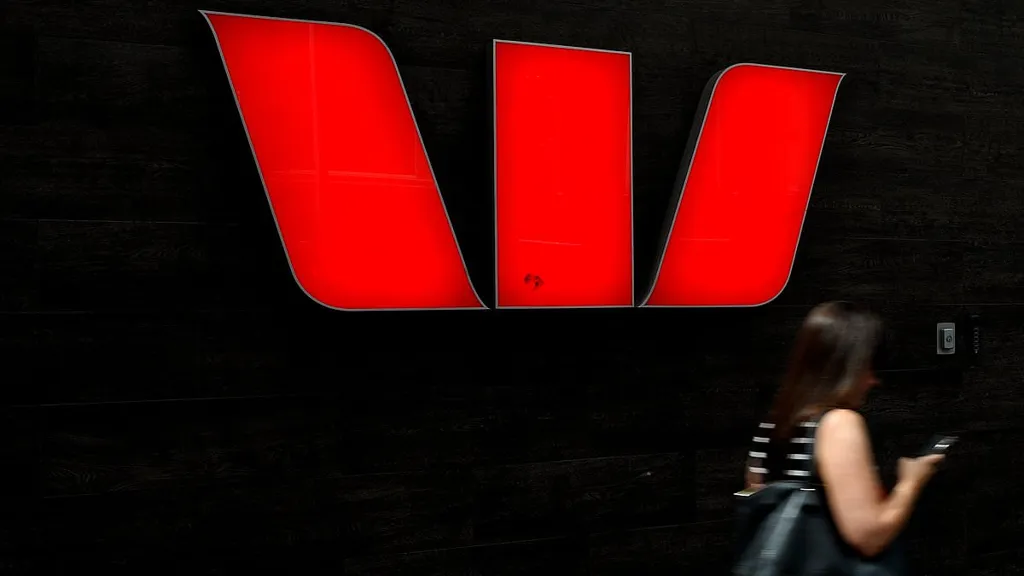An outraged Aussie has slammed Wetspac claiming the bank froze his accounts and blocked his transaction after he tried to use his money to invest in cryptocurrency.
Radio host Ben Fordham spoke with Tim on 2GB's Breakfast Show on Wednesday morning.
The disgruntled listener told Fordham he had deposited $80,000 into Westpac as he wanted to use the money to invest in Bitcoin.
Tim transferred $50,000 to CoinSpot - Australia's cryptocurrency exchange platform - and hoped to assess the market over the weekend before investing on Monday.
However, Tim received a text message from the bank alerting him that the transfer had been blocked.
Westpac also advised Tim to contact their Risk Management team as they were 'looking into' the matter.
Tim explained after his third attempt and waiting for about an hour he spoke with a team member who he described as a 'rude and obstructive gentleman'.
The frustrated customer recorded his phone conversation, claiming the worker had 'no intention of saying yes to the transfer'.
Tim slammed Westpac after the bank froze his account and blocked a transfer which he was hoping to use to invest in cryptocurrency.
The Westpac staff member explained to Tim that he was using the banking platform and therefore had agreed to the bank's terms and conditions.
'You're the bank, you've got my money. I want my money back,' Tim said.
The staff member replied: 'Look, we're not going to be able to facilitate this payment if you're not forthcoming and honest with us.'
Tim urged the staff member to ask the required questions as he had five kids in his living room waiting for him to finish the call and cook dinner.
The Westpac staff member added he was 'still incredibly concerned' that Tim was not able to provide a clear answer.
'I want to get to my next questions but I am still incredibly concerned that you are not able to give me a clear answer,' he said.
'You keep coming back to the fact that you're just going to invest in Bitcoin, but it depends on what happens over the weekend.'
'I’m going to buy Bitcoin. Next question,’ Tim interjected.
Tim claimed he was locked out of his accounts for almost a week and spoke with a 'rude' staff member who had 'no intention' of approving his transfer.
Not satisfied with the response the staff member replied: 'Now you're just giving me that answer to just give me an answer.'
'I am genuinely trying my best to help you out as best as possible.'
'I feel as though, so far, you are trying to tiptoe around the answers and simply tell me what you think I want to hear to have this pushed through as soon as possible.'
Tim explained once again that his intention with the funds was to invest in Bitcoin on Monday and that he was waiting to see if the market spiked over the weekend – and if it did he would transfer the money back to Westpac.
He added that while it was a 'grey answer', he did intend to invest in cryptocurrency and that the staff member should write it down in his notes.
'So far, it’s honestly not adding up with everything you’re telling me,' the Westpac staff member said.
Tim told Fordham he felt as though the staff member had 'no intention' of allowing the transfer to go through or letting him have the freedom to use his own money.
Following the phone conversation, Tim claimed Westpac froze his account and blocked his online access leaving him without money for almost a week.
'I couldn't move it around or see other statements or pay bills,' Tim said.
'I then spent two hours in the Westpac branch where I live, where the gentleman there was lovely and I played him the recording and he couldn't believe it.
'I eventually got the money back, and sent it to a different bank that I've had a better time with.'
Tim added his experience highlighted the growing concern of the overreaching rules and regulations of banks particularly in Australia.
Daily Mail Australia has contacted Westpac for comment.
It's understood Westpac undertakes precautions when customers transfer large amounts in a bid to prevent them from falling victim to a scam.
Many investment scams involve a person transferring large sums of money to another account or require a person to send money through crypto exchange platforms.
In some cases, customers might even be coached in what to say to their bank in order to have the transfer cleared and released.
